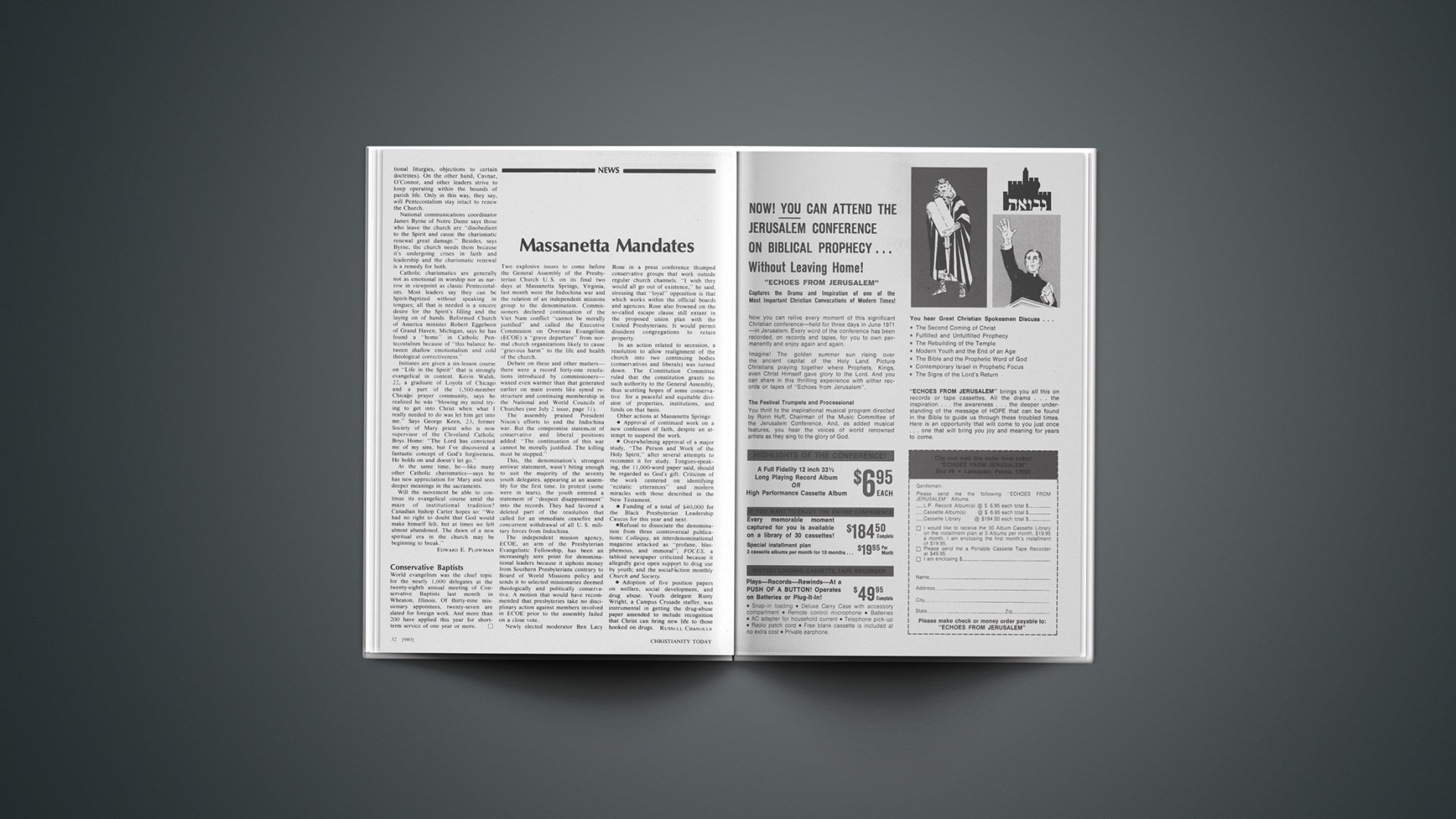Two explosive issues to come before the General Assembly of the Presbyterian Church U. S. on its final two days at Massanetta Springs, Virginia, last month were the Indochina war and the relation of an independent missions group to the denomination. Commissioners declared continuation of the Viet Nam conflict “cannot be morally justified” and called the Executive Commission on Overseas Evangelism (ECOE) a “grave departure” from normal church organizations likely to cause “grievous harm” to the life and health of the church.
Debate on these and other matters—there were a record forty-one resolutions introduced by commissioners—waxed even warmer than that generated earlier on main events like synod restructure and continuing membership in the National and World Councils of Churches (see July 2 issue, page 31).
The assembly praised President Nixon’s efforts to end the Indochina war. But the compromise statement of conservative and liberal positions added: “The continuation of this war cannot be morally justified. The killing must be stopped.”
This, the denomination’s strongest antiwar statement, wasn’t biting enough to suit the majority of the seventy youth delegates, appearing at an assembly for the first time. In protest (some were in tears), the youth entered a statement of “deepest disappointment” into the records. They had favored a deleted part of the resolution that called for an immediate ceasefire and concurrent withdrawal of all U. S. military forces from Indochina.
The independent mission agency, ECOE, an arm of the Presbyterian Evangelistic Fellowship, has been an increasingly sore point for denominational leaders because it siphons money from Southern Presbyterians contrary to Board of World Missions policy and sends it to selected missionaries deemed theologically and politically conservative. A motion that would have recommended that presbyteries take no disciplinary action against members involved in ECOE prior to the assembly failed on a close vote.
Newly elected moderator Ben Lacy Rose in a press conference thumped conservative groups that work outside regular church channels. “I wish they would all go out of existence,” he said, stressing that “loyal” opposition is that which works within the official boards and agencies. Rose also frowned on the so-called escape clause still extant in the proposed union plan with the United Presbyterians. It would permit dissident congregations to retain property.
In an action related to secession, a resolution to allow realignment of the church into two continuing bodies (conservatives and liberals) was turned down. The Constitution Committee ruled that the constitution grants no such authority to the General Assembly, thus scuttling hopes of some conservative for a peaceful and equitable division of properties, institutions, and funds on that basis.
Other actions at Massanetta Springs:
• Approval of continued work on a new confession of faith, despite an attempt to suspend the work.
• Overwhelming approval of a major study, “The Person and Work of the Holy Spirit,” after several attempts to recommit it for study. Tongues-speaking, the 11,000-word paper said, should be regarded as God’s gift. Criticism of the work centered on identifying “ecstatic utterances” and modern miracles with those described in the New Testament.
• Funding of a total of $40,000 for the Black Presbyterian Leadership Caucus for this year and next.
• Refusal to dissociate the denomination from three controversial publications: Colloquy, an interdenominational magazine attacked as “profane, blasphemous, and immoral”; FOCUS, a tabloid newspaper criticized because it allegedly gave open support to drug use by youth; and the social-action monthly Church and Society.
• Adoption of five position papers on welfare, social development, and drug abuse. Youth delegate Rusty Wright, a Campus Crusade staffer, was instrumental in getting the drug-abuse paper amended to include recognition that Christ can bring new life to those hooked on drugs.










